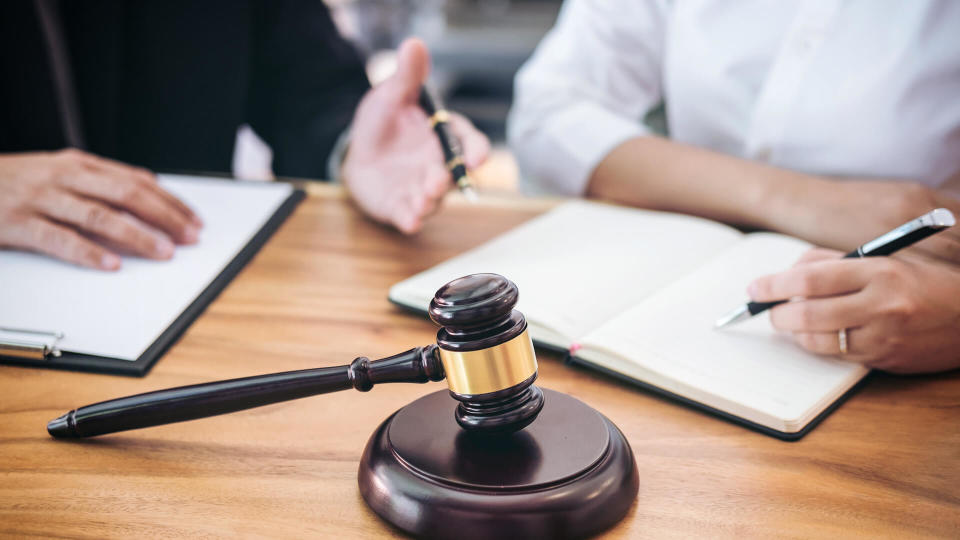What Happens to Your Bank Account When You Die?

What happens after we die? Science and religion have long debated this question on a metaphysical level, while accountants and other finance professionals deal with the issue in an administrative and legal sense. They — possibly along with estate attorneys, judges and even debt collectors — swoop in to sort out the aftermath of your monetary life. This includes dealing with your bank account and figuring out exactly where the remaining funds go.
The specifics of what happens to your bank account when you die depends on how you left your financial affairs and the nature of the type of account you held.
“First, it is important to note that what happens to your bank account when you die will depend on a host of factors,” said Mariah Street, CEO and managing attorney at Legacy Street Law. “In other words, what happens to one person’s bank account may not be the same thing that happens to another person’s bank account. There will never be a ‘this is exactly what is going to happen to every person’s account no matter what’ process; however, the process of determining what happens to that account is always the same.”
Advice: 10 Estate Planning Mistakes To Avoid
More: How To Talk to Your Parents About Their Estate Plan (Without Making It Awkward)
Step 1: Determining Who Holds Title To Your Account
“The first thing that will be examined in determining what happens to your bank account when you die is who or what holds title to that account,” Street said. “Basically, we’ll need to see whose name is on the account. Did you and your spouse have a joint account, which means that both of you are joint owners? If so, then that account will likely go directly to the surviving spouse. Did you have a trust in place that is the owner of that account? If so, then the funds from that account will be distributed according to the terms of the trust.”
Step 2: Locating Who Is ‘Payable On Death’
“If you did not have a joint owner of the account when you died or a trust wasn’t the owner of the account, the next thing that will be asked is: Did you have some sort of ‘payable on death’ directive in place for that bank account?” Street said. “Banks these days have options for you to direct the funds of your bank account to be given to specific people (i.e., beneficiaries) you name when you die. If you opted to participate in that option, then that account will be directly given to the adult person/people you have named.”
Learn: What To Do If You Are the Executor of a Will
Step 3: The Money Goes to Probate (If Necessary)
“If the people you named as payable on death are minors, the funds in your account will be considered part of your estate and will need to go through your state’s probate court process in order to for the court to name the person who will manage and distribute that account on behalf of the child(ren) and decide how it gets distributed,” Street said. “This can be a lengthy (they likely won’t see the money immediately) and expensive process, depending on how old the child(ren) is at your death, how complex your estate and family situation is and the nature of the probate process in your state.”
Step 4: Was There a Will?
If you owned the account by yourself, if you didn’t have a trust in place, and if there was no ‘payable on death’ directive on the account, next we’ll look at whether you had a will in place,” Street said. “If you did, the bank account will go to the beneficiary named in the will. It’s important to note here that wills still have to go through the probate process that I mentioned earlier, even if you named an adult beneficiary for that account in your will or even if your will establishes a trust at your death for your minor children. Probate, put simply, is a state process that determines how assets within your estate are distributed at your death.”
Good Question: Who Inherits When No Will or Trust Exists?
Step 5: No Will, No Trust? The State Decides
“If … you did not have a will in place, then state law will determine what happens to that account and who will receive it,” Street said. “Who gets it and how will vary by state because all state laws are different concerning this. And, once again, your family or loved ones will have to go through the probate process in order to determine these things. Generally, the next of kin (as defined and determined by state law) will receive that account.”
An Estate Attorney Could Be Needed
“As mentioned above, this process will be followed in determining what happens to your bank account when you die, but what exactly happens depends a lot on the above factors,” Street said. “Things could even happen that weren’t mentioned, especially if some sort of litigation or other complex legal issues become involved in the handling of your estate. It all depends on the situation. Having a trusted estate attorney helping out your family with this administration process is essential to make things as easy and efficient as possible.”
More From GOBankingRates
This article originally appeared on GOBankingRates.com: What Happens to Your Bank Account When You Die?

 generic
generic 